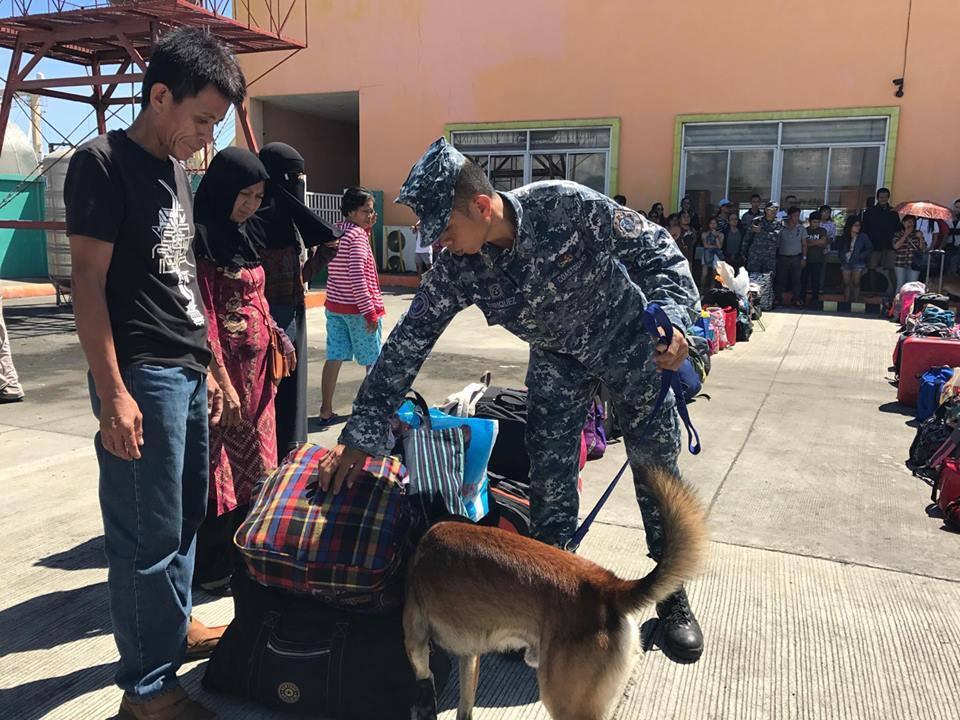The Philippines government has ordered the Philippine Coast Guard (PCG) to take over security of the country’s ports and waterways as it battles a stubborn Islamic insurgency in the country’s south.
Transportation secretary Arthur P. Tugade, in Department Order No. 2017-008, directed the PCG “to take over the security supervision of ports, and shipping, whether public or private, including the egress and ingress to all waterways from the Maritime Industry Authority (MARINA) and the Philippine Ports Authority (PPA).”
The order instructs the Coast Guard “to control movement of all vessels in seaports and harbours; designate security zones for maritime security purposes; enforce ports and ships identification system; regulate access to ports, vessels and waterfront facilities; inspect cargoes to prevent the transport of contrabands; and to set and enforce appropriate security levels in all ports in Mindanao, pursuant to the provisions of the International Ships and Ports Security (ISPS) Code,” according to the department’s website.
To emphasize the magnitude of the change, the site adds “This allows the PCG to arrest, seize and detain persons, cargo and vessels found violating maritime security and other pertinent laws and to file the necessary charges.”
Furthermore, the Coast Guard is to strictly enforce maritime security communications; supervise, regulate and control port police and private security guards, K9 entities, divers and underwater operations in all maritime-related facilities and infrastructure.
The order will remain in full force and effect until martial law in Mindanao is lifted, the site added.

Industry reaction has been supportive, in part because of the prevailing view that the transfer meets, but does not go beyond, what is needed.
“The security measures designed by the Philippine Coast Guard against this external threat are enough to address the current situation,” the Manila office of Regional Container Lines told Asia Cargo News.
“The decision made by the Philippine government has so far [not created] a dent nor any significant impact on both the operational and commercial aspect of RCL’s business in the Philippines. Rather, the measure has provided even greater security to our vessels calling at Philippine Ports against external threats and any type of man-made disturbances,” it added.
The Philippines shipping industry has developed an awareness that security is more challenged than previously thought.
When the Maute group, which is affiliated with the Islamic State, seized and then held for over a month the city of Marawi on the southern island of Mindanao, alarm bells should have gone off hard and long, according to some.
“Marawi should serve as a wake-up call to governments across Asia,” said Phill Hynes, head of political risk and analysis at ISS Risk in Hong Kong. Hynes’s view is that Marawi is not a one-off but the rallying call by which Islamist groups will dig themselves into Southeast Asia and beyond. “Spectaculars” – such as an attack on Metro Manila he suggested – “cannot be ruled out,” he said.
Media reports say that the battle for Marawi has attracted would-be jihadists from nearby Indonesia and Malaysia, as well as from the Middle East.
The news comes at a bad time for the sector, with the PPA posting encouraging revenue figures in the first quarter amid a strong economy. The latest PPA data showed net income increased 23% to P2.3 billion (US$45.75 million) for the period compared to the P1.93 billion (US$38.41 million) registered in the same period last year. The figure is also higher by 32.84% against the target of P1.78 billion. Gross income, meanwhile, rose to P3.48 billion, up 9.10% from the P3.19 billion collected in 2016.
By Michael Mackey
Southeast Asia Correspondent | Bangkok



